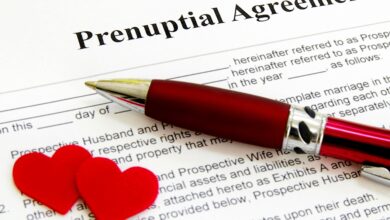Should I Consider a Secured or Unsecured Loan?

Funding is an unavoidably crucial aspect to building a new business or brand – and lending, a uniquely useful vehicle for promoting early investment and growth. But with around 90 new businesses being launched per hour in a year of especial financial difficulty, lending has become all the more important for young businesses to get right. There are two principal kinds of business loan: secured and unsecured. But what are the differences?
Read More: How to Hire a Good Bankruptcy Lawyer in Staten Island, NY
What is a Secured Business Loan?
A secured business loan, put simply, is a loan offered by a major banking or lending institution that is secured a business’ or individual’s assets. Assets are used as a form of collateral against the loan in question, to be seized by the institution in the event that repayment terms are not met by the borrower.
Secured business loans typically use property as the chief security, being an asset of high value and low ‘volatility’ – they are ‘fixed assets’. But, depending on the lender, other fixed assets and items can be used as collateral. Secured business loans often enjoy relatively low rates of interest, as a result of the low risk on the part of the lender; with an asset available for repossession, the lender is not risking the value of the loan. Secured business loans can also be paid over longer periods of time.
What is an Unsecured Business Loan?
An unsecured business loan, meanwhile, describes a loan offered by a lender or banking institution that does not require a fixed asset as security. These tend to be for smaller sums of money than secured loans, and come with higher interest rates attached. This is because the risk associated with recouping the loan is much higher for lenders.
While the risk may seem lower for the borrower, as failure to meet repayment conditions does not result in the forfeiture of property, there are different consequences. The lender may add fines and premiums to your liability, and your continued failure to meet terms can lead to poor outcomes regarding your personal credit score.
Read More: Never Sign a Contract Without Knowing These 4 Important Things
Which Type of Lending is Right for Your Business?
Ultimately, choosing between a secured and unsecured loan depends greatly on your individual circumstances, with two factors weighing particularly heavily on your decision: timeframe, and cost. Obtaining a secured loan of course requires that you or your business own assets enough to shore up your debt – but beyond this, you need to consider the future of your business and the relative weight of the debt.
An unsecured loan might be particularly useful if you know you can pay it off in short order. This allows you to circumvent the financial impact a high interest rate can have, while still affording you a crucial cash injection. But if you cannot pay in the short term, a lower interest rate over a longer period of time – backed by a fixed asset – can ensure your short-term cash needs do not have an overwhelmingly negative cashflow impact.










